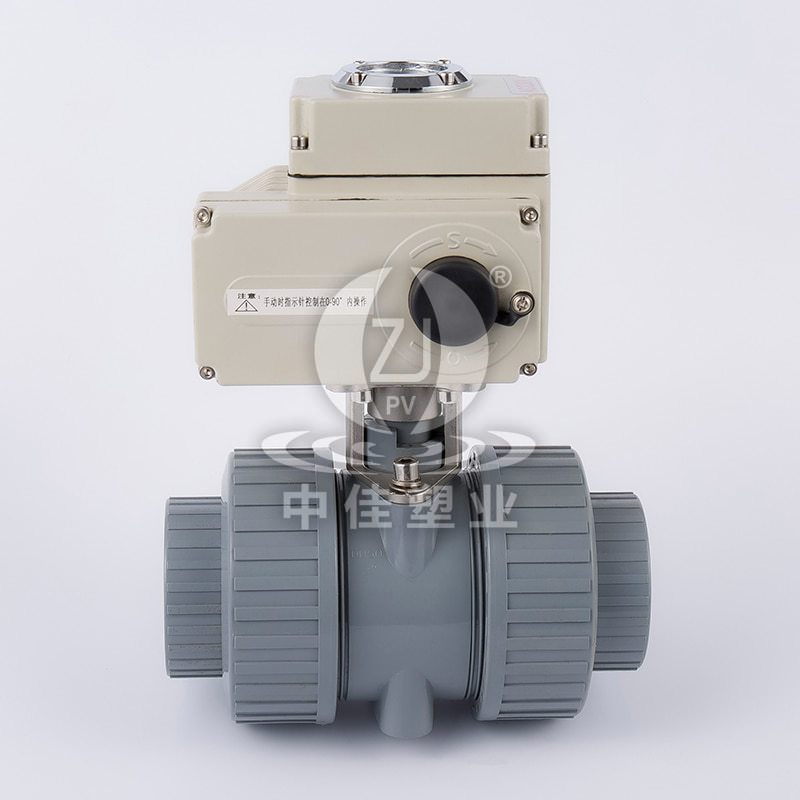

While both metal and PVC-U valves have their place in various applications, PVC-C brings a unique blend of strength, chemical resistance, and lightweight properties that make it an increasingly popular choice for demanding systems.
In high-temperature environments, PVC-C valves exhibit remarkable heat resistance, typically withstanding temperatures up to 90°C (194°F) or even higher in some formulations. This makes them an excellent choice for systems where temperatures fluctuate or where the fluid being controlled is prone to reaching elevated levels. PVC-U, in contrast, generally performs well up to around 60°C (140°F), which limits its application in more extreme conditions. Metal valves, though capable of handling higher temperatures, come with the downsides of being heavier, more expensive, and more prone to corrosion when exposed to aggressive chemicals or moisture. This is where PVC-C really shines—offering a robust solution without the corrosion concerns that often plague metal valves.
High-pressure environments, particularly those encountered in industrial systems, also see significant performance benefits with PVC-C valves. Unlike PVC-U, which may start to deform under high-pressure conditions, PVC-C maintains its integrity, withstanding pressures up to 16 bar or more, depending on size and design. This is especially important in systems requiring precision flow control under varying pressures. Metal valves, while strong, can be costly and heavier, making PVC-C valves an attractive alternative for businesses looking to reduce operational costs without sacrificing performance. Additionally, the lightweight nature of PVC-C valves facilitates easier handling, installation, and maintenance, which helps to reduce downtime during operations.

One of the standout features of PVC-C valves is their resistance to a broad spectrum of chemicals, making them suitable for industries such as chemical processing, water treatment, and pharmaceuticals. They handle aggressive substances like acids, alkalis, and solvents with ease, unlike PVC-U, which can degrade when exposed to certain chemicals. Metal valves, though highly resistant to wear, are susceptible to corrosion in harsh chemical environments, which can lead to frequent repairs or replacements. In contrast, PVC-C valves offer a much lower lifecycle cost due to their durability and ability to resist chemical degradation over time.
PVC-C valves also outperform metal valves in terms of maintenance and long-term serviceability. Metal valves often require more intensive maintenance due to rust and scale build-up, while PVC-C valves are easier to clean and maintain, significantly extending their service life. With fewer moving parts and no risk of corrosion, PVC-C valves offer a hassle-free solution that allows systems to run smoothly and efficiently, even under challenging conditions.
While metal valves may still have their place in certain high-temperature and high-pressure applications, PVC-C valves provide a highly effective alternative, especially when it comes to balancing performance, cost-effectiveness, and resistance to corrosion. Their lightweight, durable nature, combined with impressive chemical and heat resistance, makes PVC-C valves the go-to choice for industries seeking reliable and efficient flow control in demanding environments. Whether you are dealing with extreme temperatures, fluctuating pressures, or corrosive substances, PVC-C valves provide an adaptable, cost-efficient solution that stands the test of time.